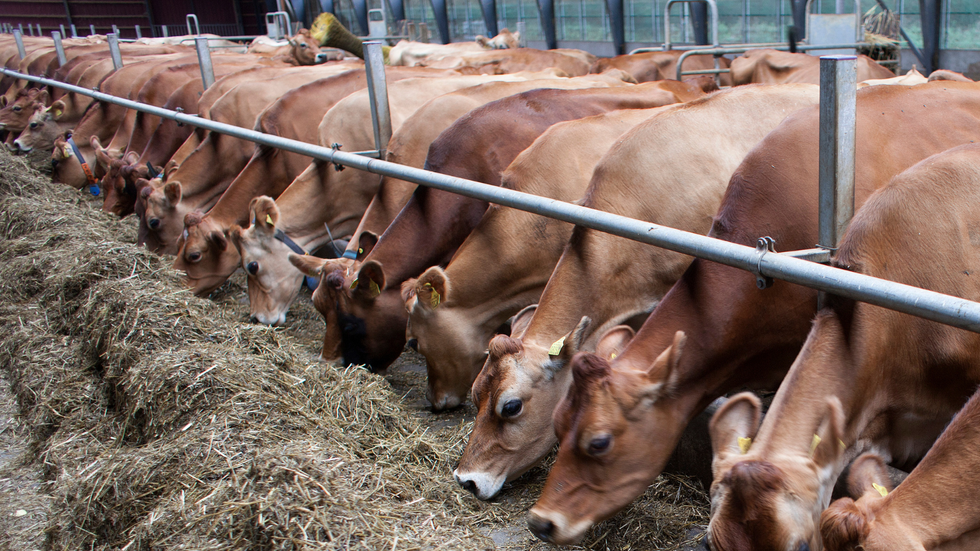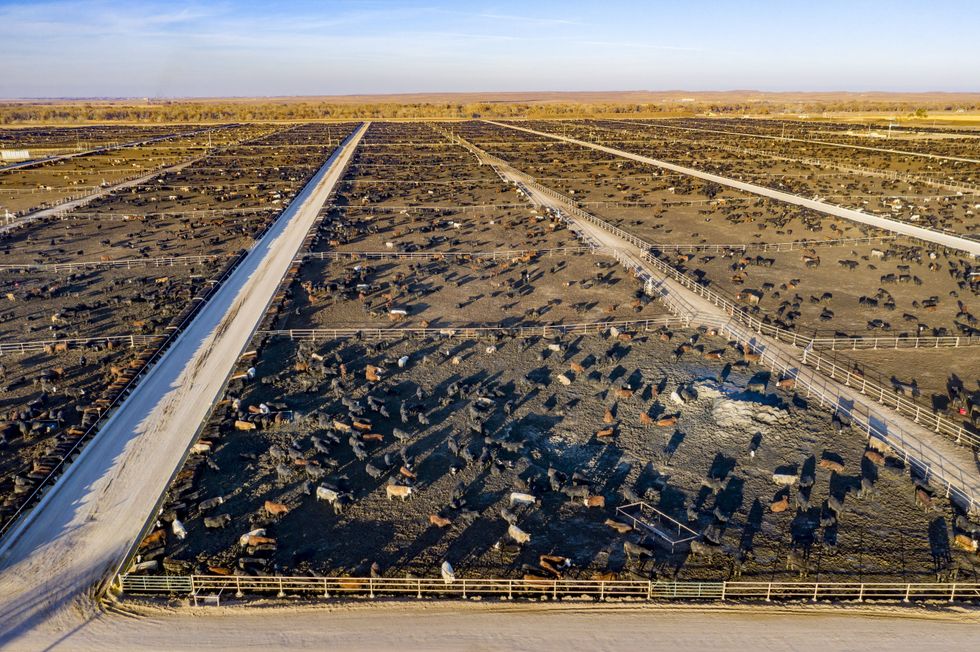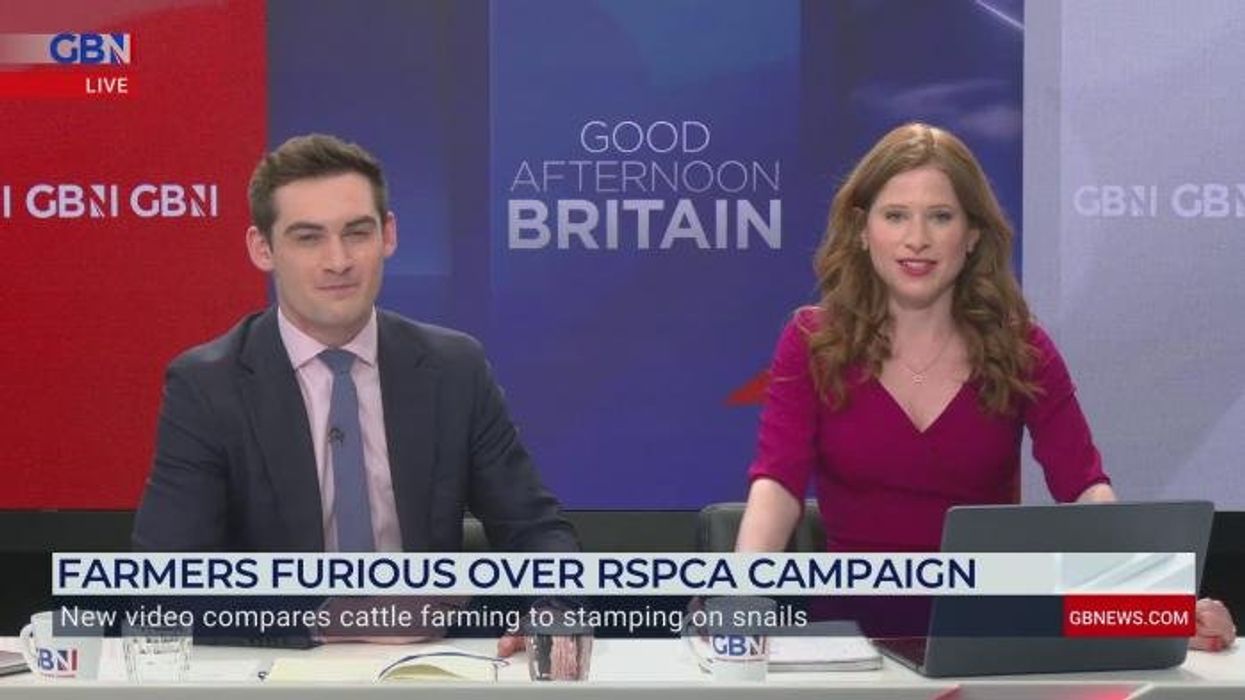EXPOSED: Billions of baby animals set to be victims of EU's ruthless axe as UK falls prey to loophole

Animal rights activists have highlighted all-around suffering on an industrial scale
Don't Miss
Most Read
Trending on GB News
Animals in Northern Ireland could soon face barbaric cruelty under the EU's latest plan to cut red tape, a bombshell new report has found.
EU’s new laws to protect 1.6bn animals from barbaric cruelty are set to be axed under Ursula von der Leyen's ‘deregulation drive’.
As the new report from thinktank Facts4EU explains, for many years, the inhumane conditions in the EU for farm animals as they are transported for fattening, slaughter, or breeding, have been the subject of protests both in the UK and across Europe.
Brexit Britain was able to impose a live animal export ban last year, but the EU’s Directives for Northern Ireland remain.
President for the European Commission Ursula von der Leyen said: "The key for Europe in this world is to move faster, make business easier and invest in what makes us unique and strong. This is why we have put out a plan to radically speed up the completion of our Single Market.
"This is why we are targeting the bottlenecks that are holding our competitiveness back – from energy prices to investment and private capital. And it is why we have started a huge simplification drive. We need less complex rules, less overlaps, less forms to fill out. And we need to speed up across the board. An urgency mindset must drive all of our work."
Animal rights activists have complained about the EU's treatment of animals during live exportations from Northern Ireland, highlighting excessively long journeys without breaks, cramped conditions on trucks, very poor sanitary conditions, extreme heat or cold, and all-around suffering on an industrial scale.
These conditions, which are illegal in Brexit Britain, have led to disease and deaths among the animals.

Animals in Northern Ireland could soon face barbaric cruelty under the EU's latest plan to cut red tape, a bombshell new report has found
|GETTY
Small animals have also been reported to have drowned in their own waste material.
Calves, as young as 14 days old, can currently be transported over several days for as much as nine hours at a time, under current EU rules, only to be slaughtered upon arrival.
Other animals, such as piglets, lambs, goats, and chickens, have also been subject to these horrific conditions.
Romania is just one country where standards are particularly low, with animal rights legislation not progressing for decades.
LATEST DEVELOPMENTS

Brexit Britain was able to impose a live animal export ban last year, but the EU’s Directives for Northern Ireland remain
|GETTY
Throughout Europe, the farming industry has become more specialised, with baby animals being transported to multiple countries for each process before their eventual slaughter.
Thinktank Facts4EU uses the example of piglets just three months old being exported from one country, fattened in another, then transported again to be slaughtered in another.
The EU has not addressed this new form of farming, which prioritises profits over welfare.
A 2023 Eurobarometer survey on attitudes towards animal welfare, shared by Facts4EU, has revealed overwhelming support among Europeans for stronger protections for animals.

Romania is just one country where standards are particularly low
|GETTY
According to the findings, 84 per cent of respondents believe the welfare of farmed animals should be better protected, while 83 per cent support limiting the time animals are transported.
Additionally, 74 per cent want improved welfare measures for pet animals in their countries.
The survey also found that 90 per cent of Europeans think farming and breeding practices should meet basic ethical standards.
A benefit of Brexit means that, unlike the European Union, Britain has been able to impose a ban on the export of live animals for slaughter or fattening.











